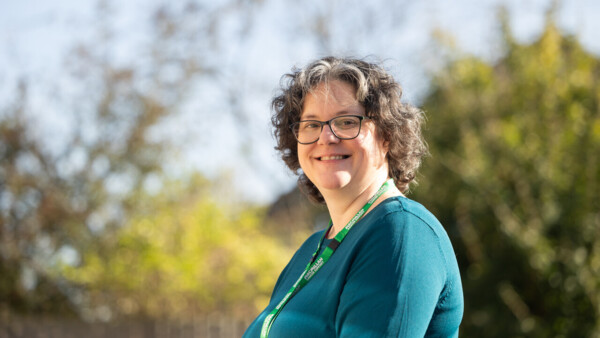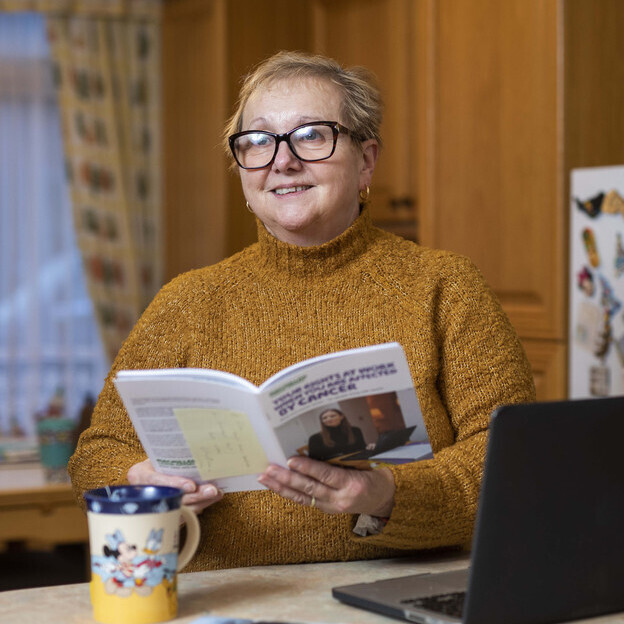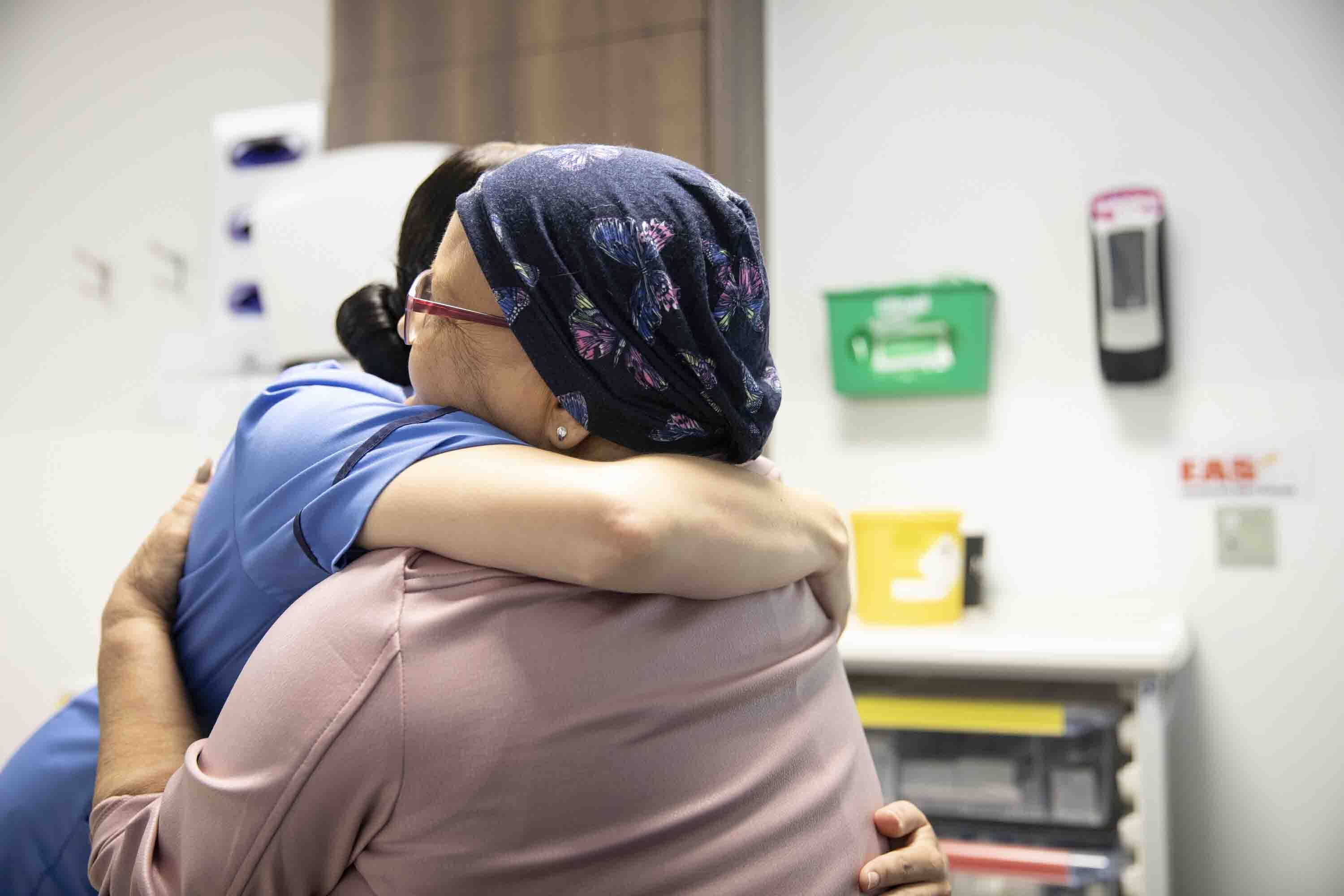Bowel Cancer Awareness Month
April is Bowel Cancer Awareness month. Whether you are directly affected by bowel cancer, or you just want to find out more, we have information that can help. There are also lots of ways to help raise awareness of bowel cancer.
"You're waving your little flag saying, 'I need some help here.' And then Macmillan comes." - Thom, diagnosed with colon cancer


What is bowel cancer?
Bowel cancer, which includes colon and rectal cancer, is one of the most common cancers in the UK. It is mostly diagnosed in people over 60, but can be diagnosed in younger people.
The bowel is part of the digestive system and is divided into the small and large bowel. Cancer can affect both areas of the bowel.
Doctors do not know the exact causes of bowel cancer, but there are risk factors that can increases your chance of developing it.
Hear from people affected by bowel cancer
Thom's story
In the video below, Thom talks about being diagnosed with colon cancer at 27 and how, with the help of staff from a Macmillan Centre, he was able to get back on his feet.
Now he's decided to give something back by raising money to fund Macmillan's vital services.
Mohammad, Nick and Nathaniel's stories
The number of people under 50 being diagnosed with bowel cancer is increasing. Mohammad, Nick and Nathaniel share their experiences of noticing symptoms and getting a diagnosis:
Under 50 and diagnosed with bowel cancer – stories from real people
They also share their advice for others including getting medical advice when something doesn’t feel right for you and being open to talking to others.
"My thought process is if one person gets checked out, finds out before I did, and it saves their life, that would make me consider my life now worth living. That's what I want to do now." Nathaniel
Support for people living with bowel cancer

Information on our website
We have information about bowel cancer on our website, which includes the different symptoms, tests and treatments for colon cancer, rectal cancer, anal cancer, small bowel cancer and anorectal melanoma cancer.
We also have information about bowel cancer in 16 different languages and other formats such as British Sign Language videos, booklets and audiobooks.

Accessing Macmillan services
Call the Macmillan Support Line on 0808 808 00 00, or chat with an adviser online, 7 days a week 8am to 8pm.
You can also email the Macmillan Support Line.
Use our get support guide by answering some quick questions to get information tailored to you or your loved one's situation.
Find out more about how Macmillan can help.

Bowel cancer support groups
We can help you find support in your local area, so you can speak to people who understand what you or your loved are going through.
The bowel cancer forum on our Online Community is a place to chat to others, ask questions and share experiences.
Ways to help during bowel cancer awareness month
Macmillan is here for everybody living with cancer, with our specialist information, support and services. But we couldn't do it without our incredible supporters. Here are a few ways you can get involved.

Make a difference in the lives of people affected by cancer. We have opportunities to suit your skills.

Campaign with us to make sure people living with cancer have their voices heard.

Whether you prefer an adrenaline rush or a caffeine rush we've got an event to suit you.


